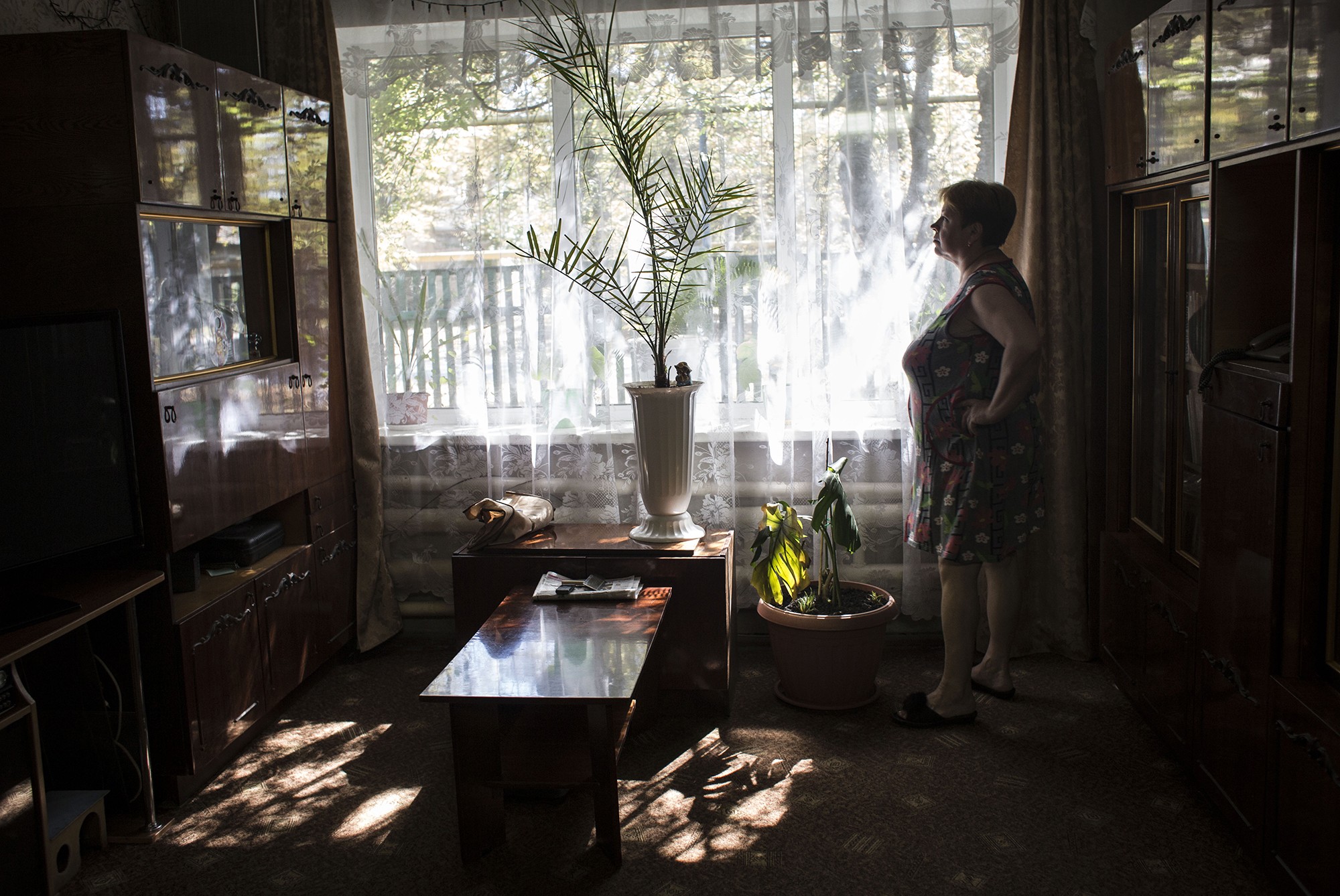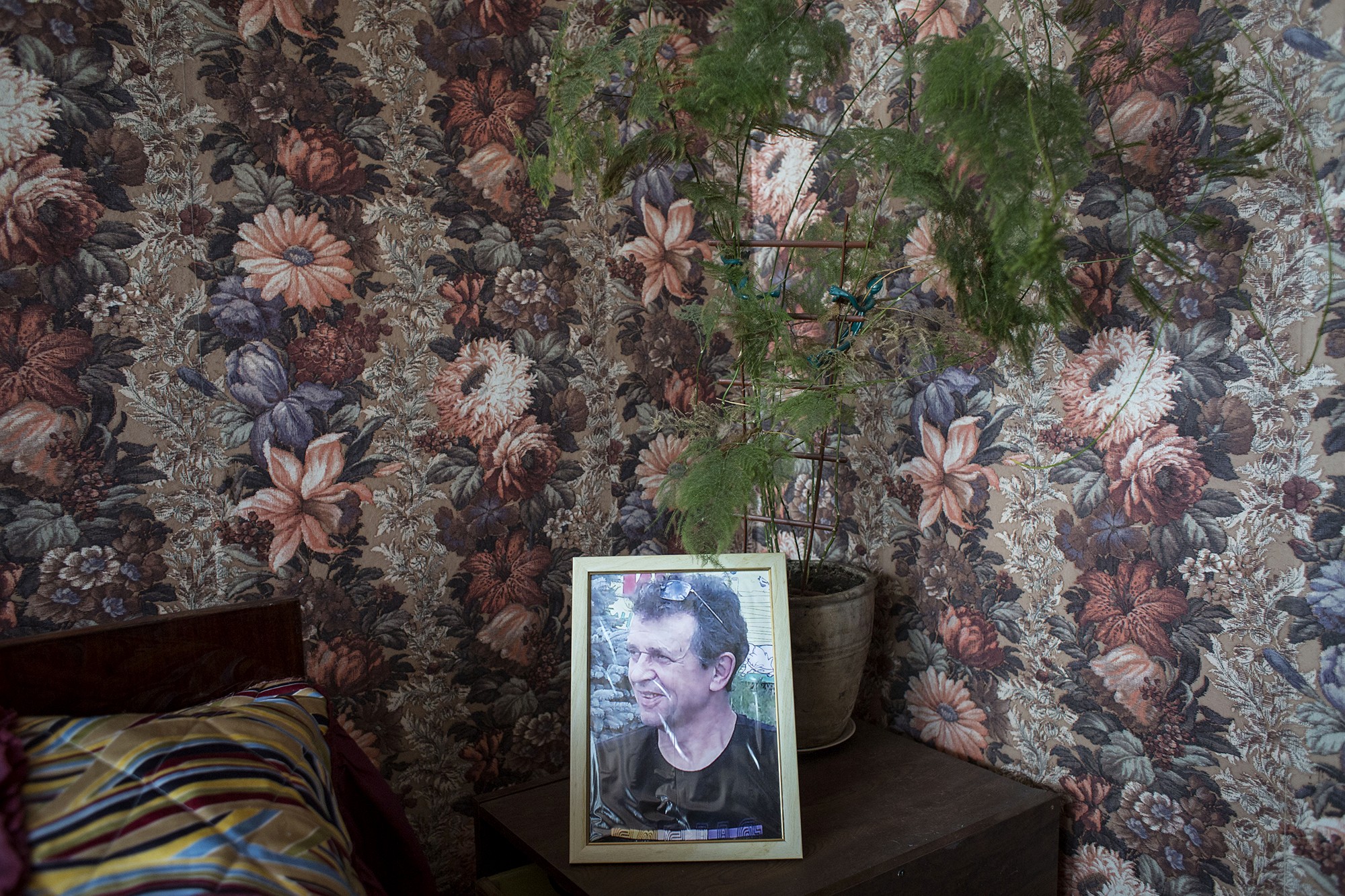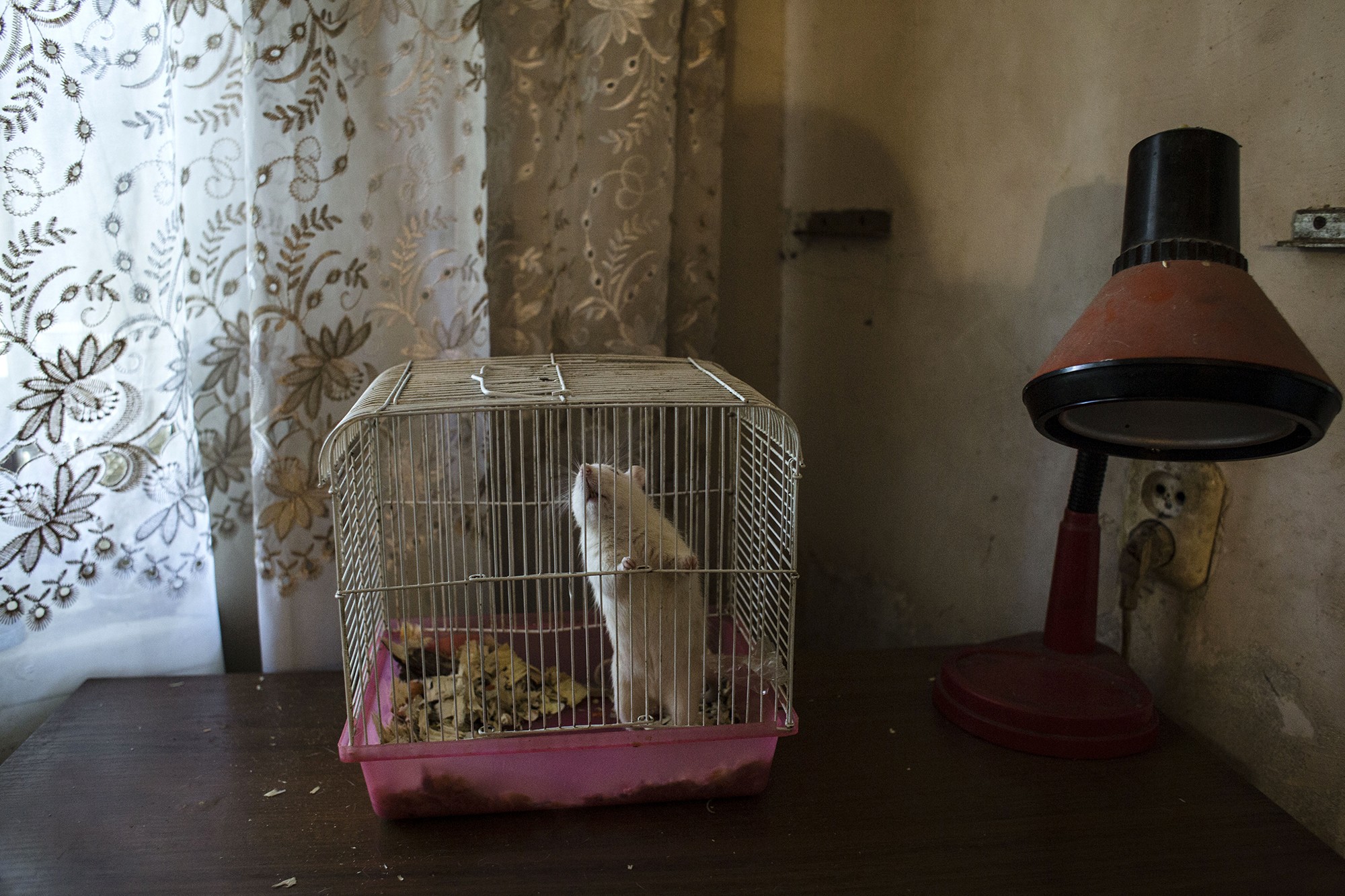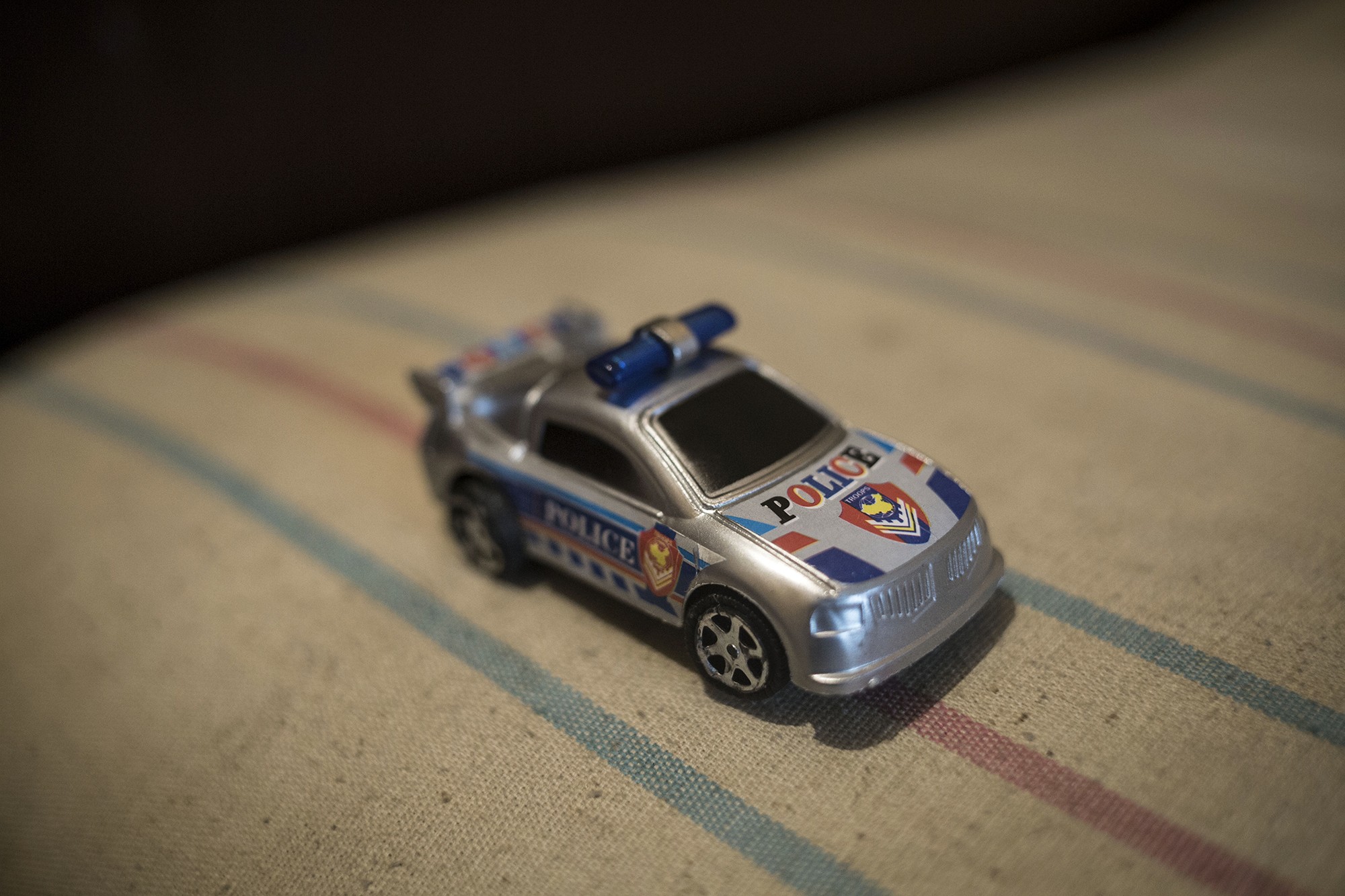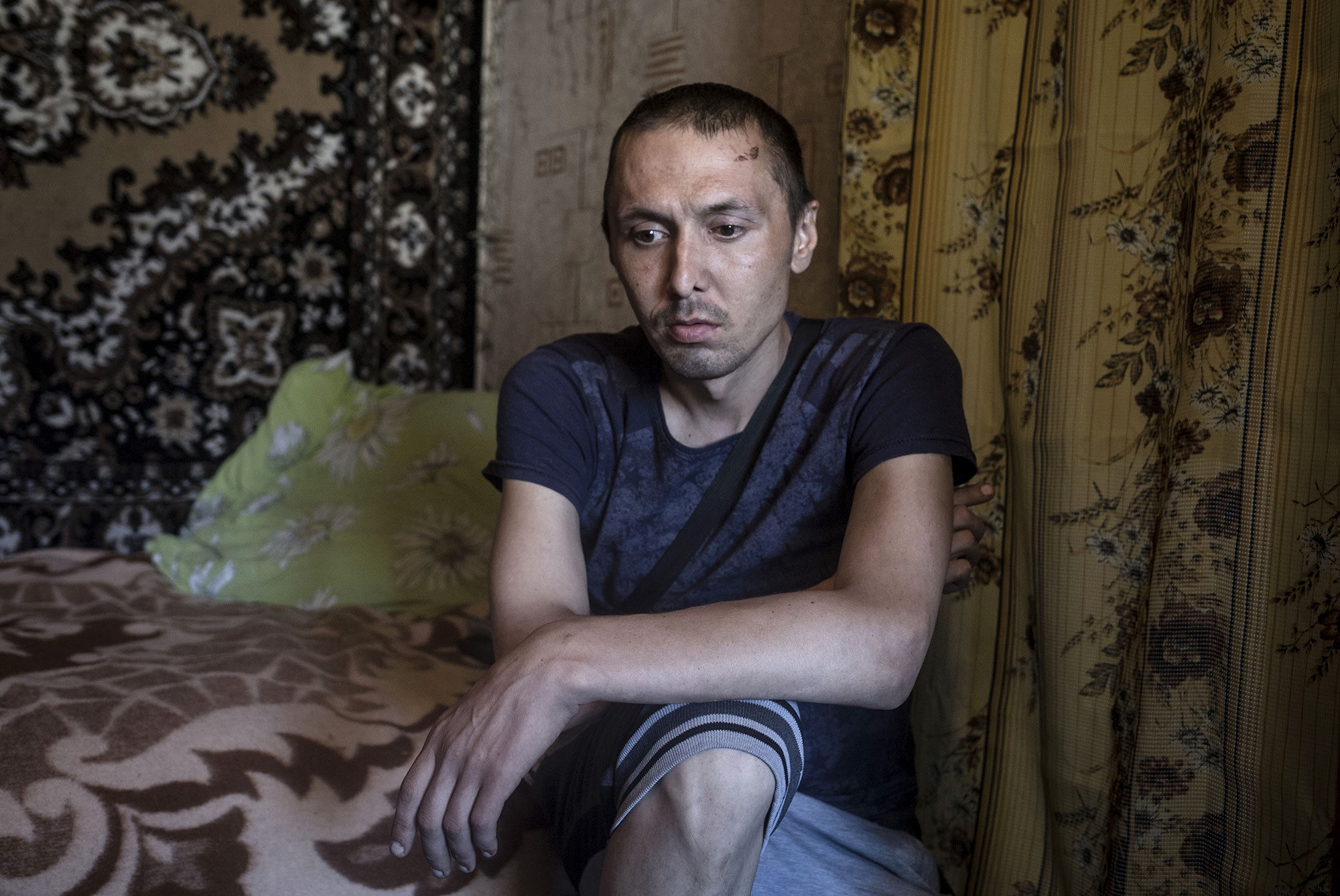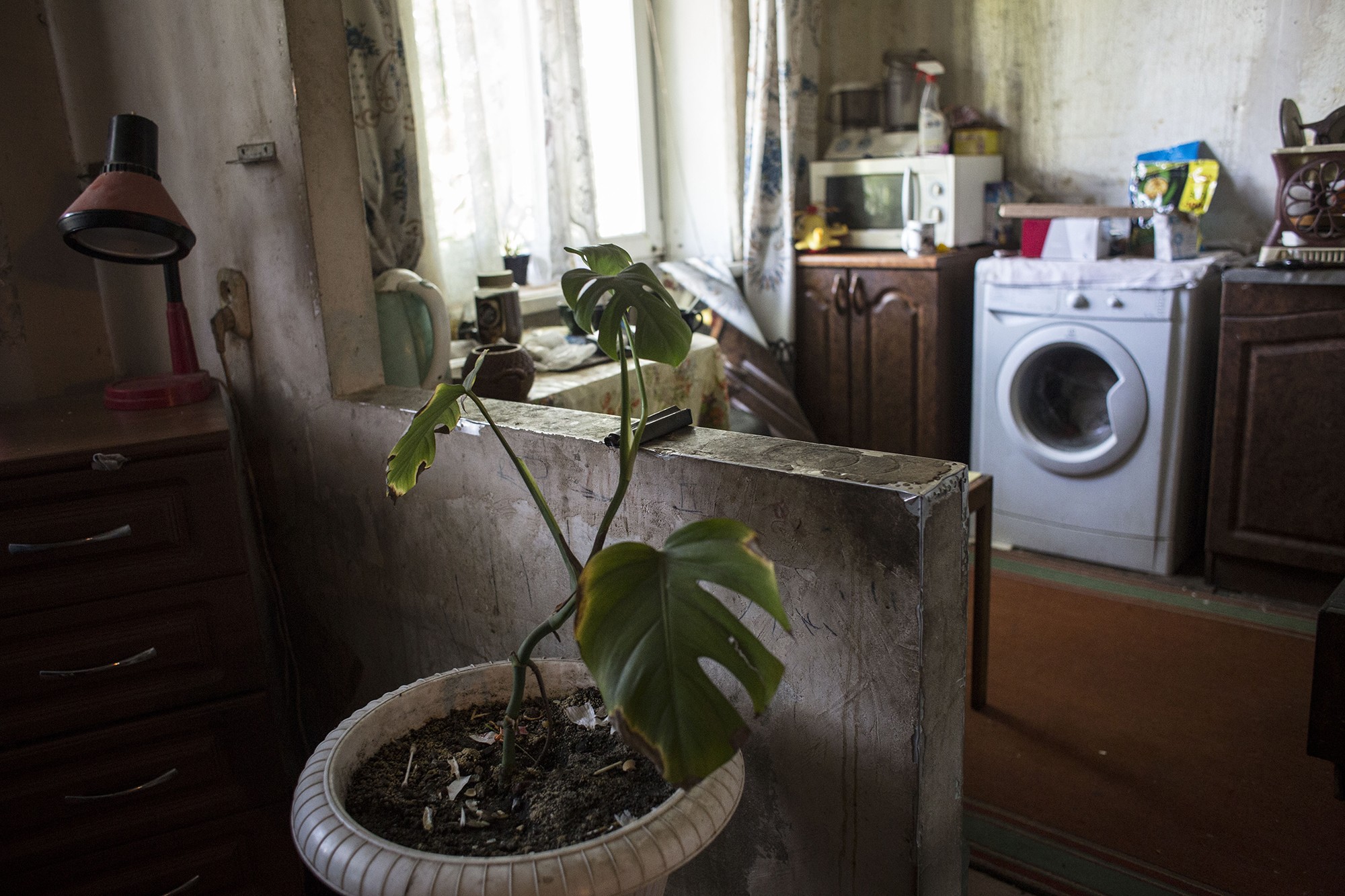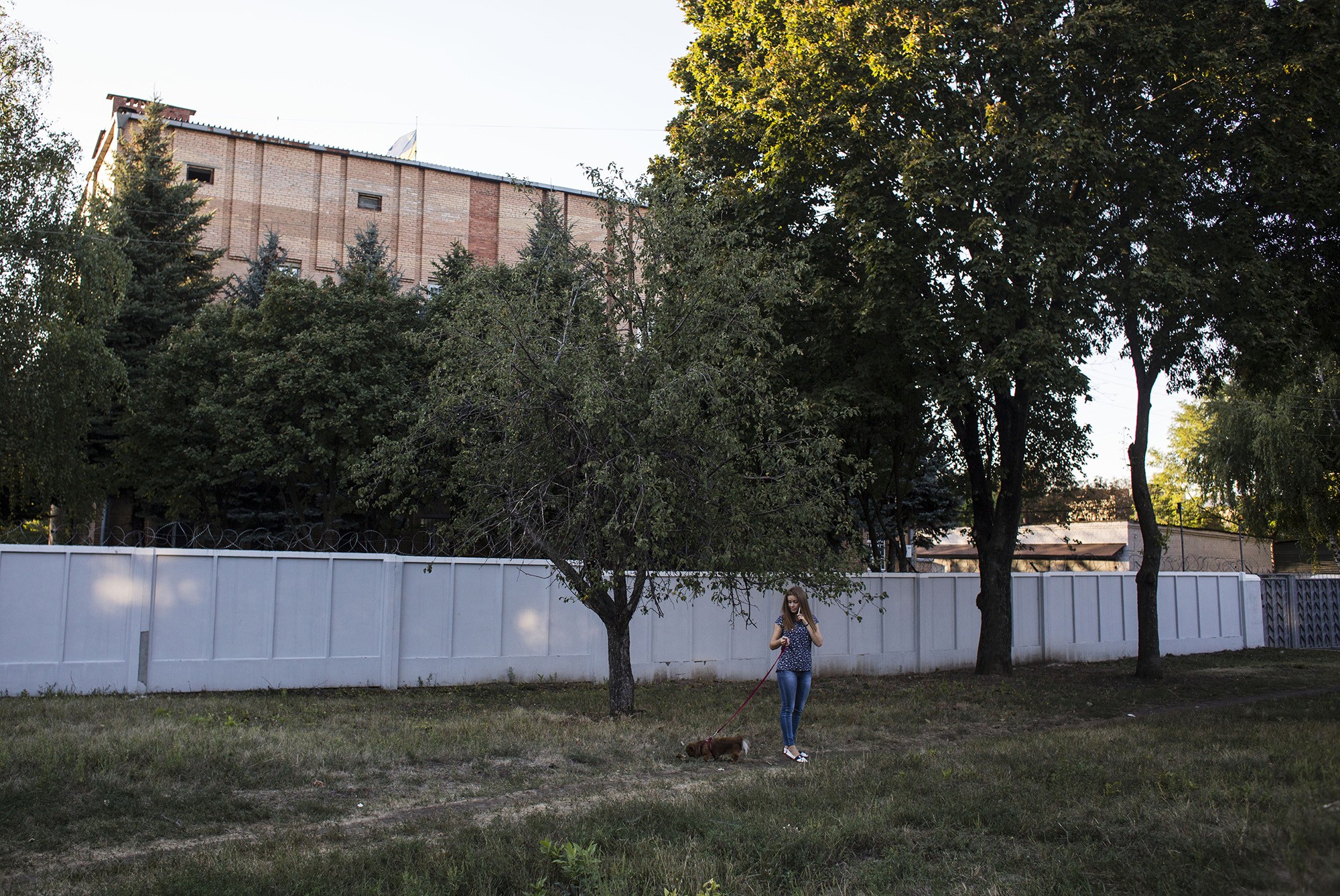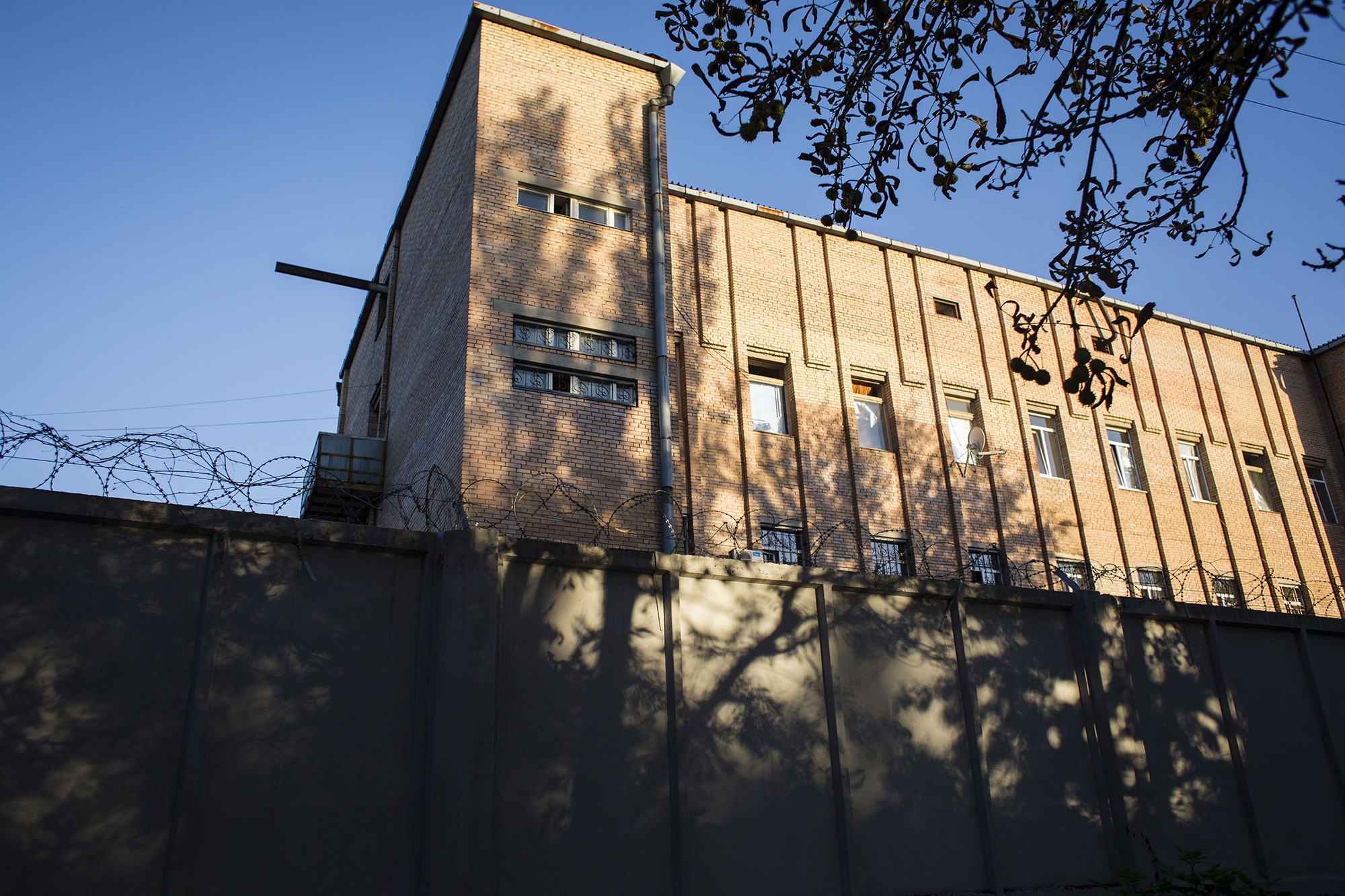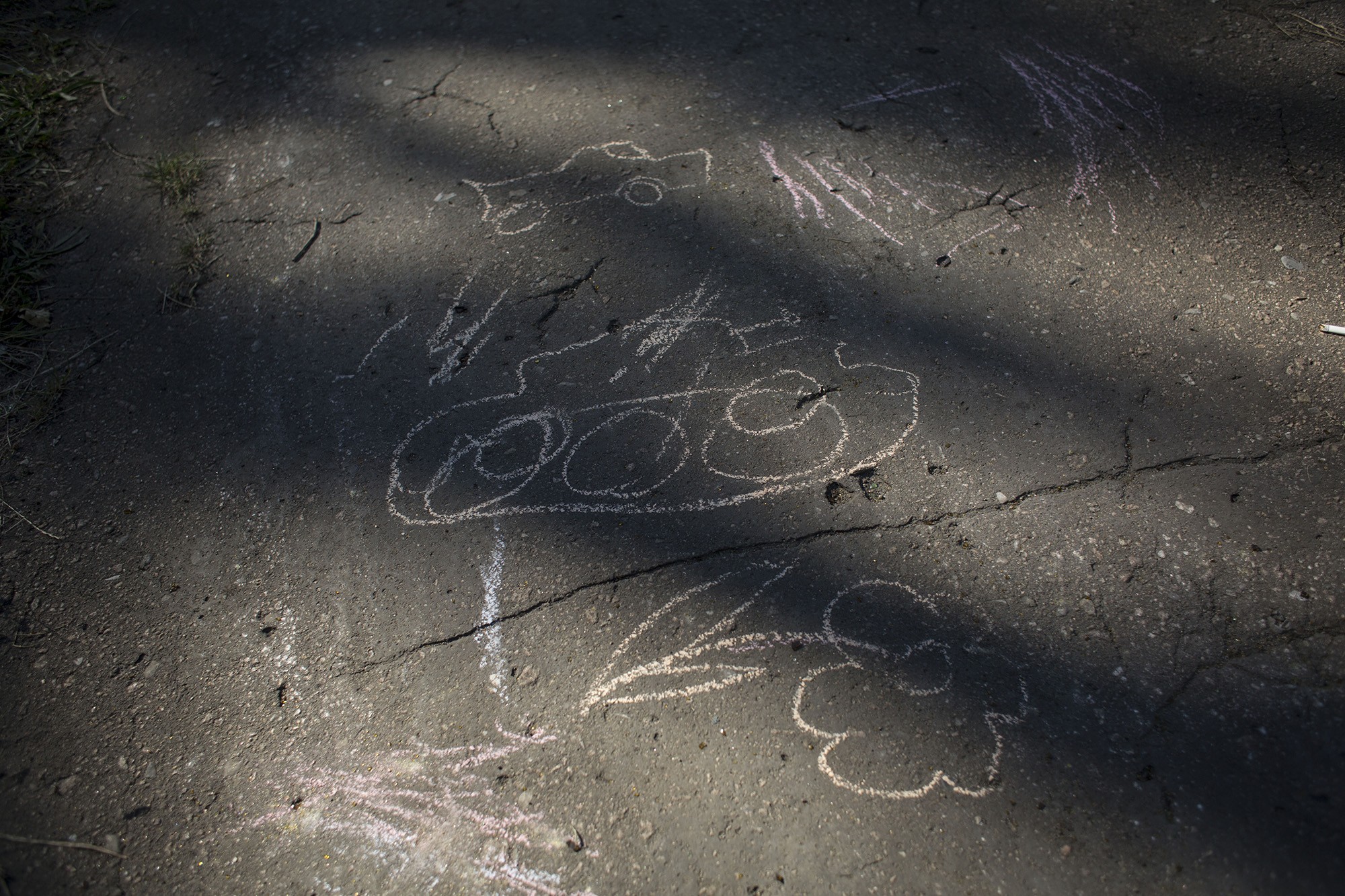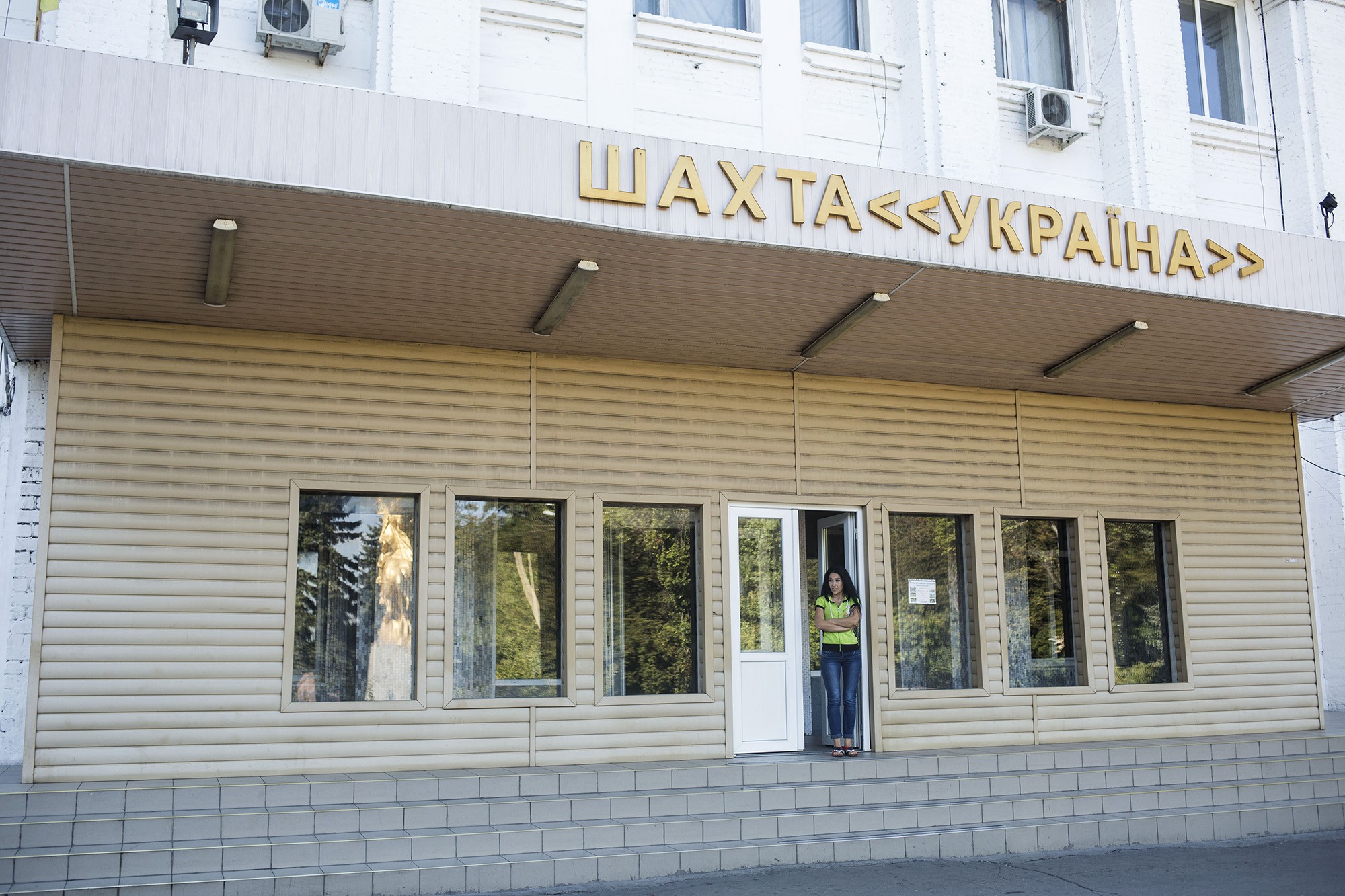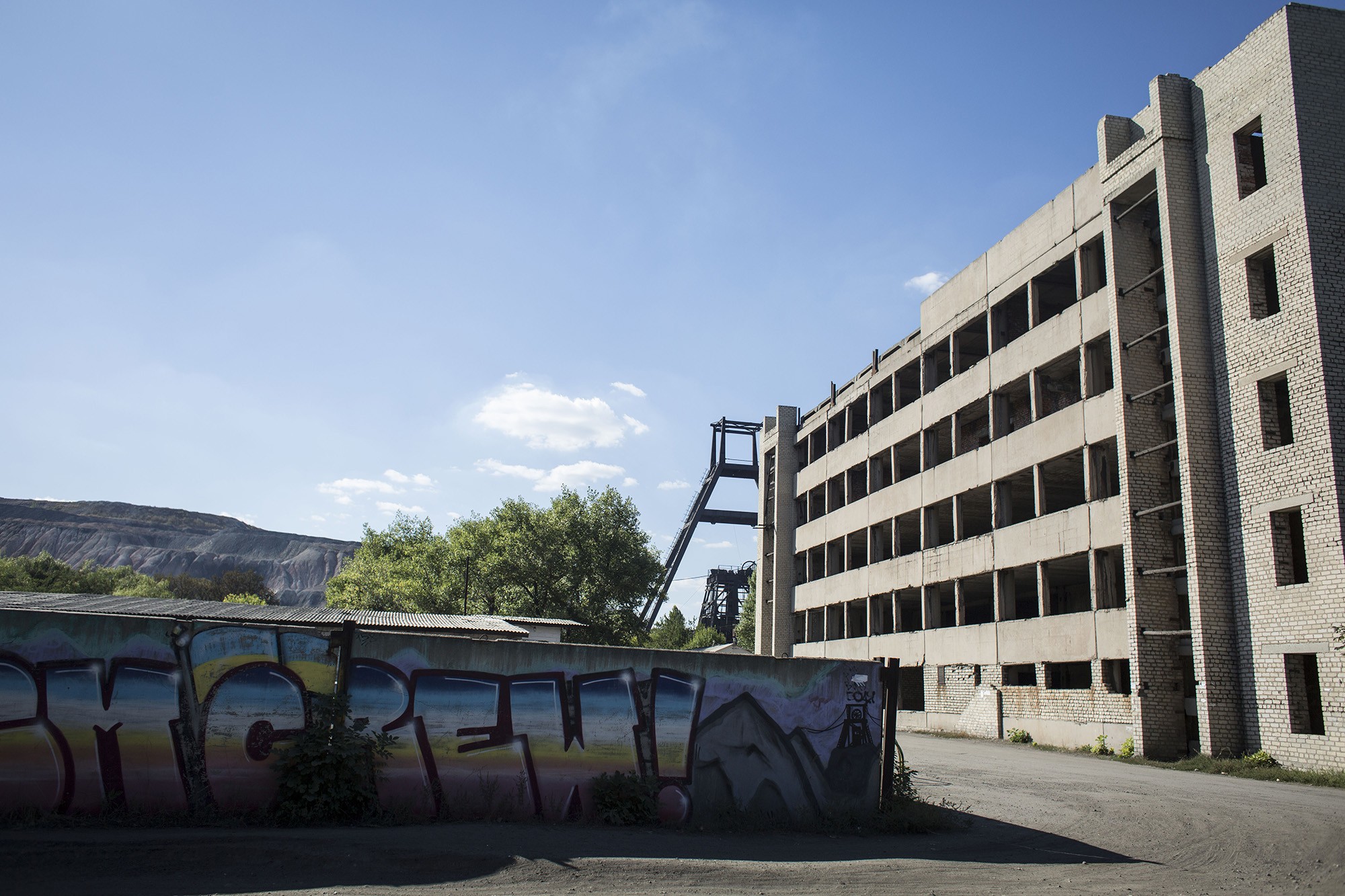UKRAINSK, Ukraine – When late on July 25 Nelia Shchogoleva was traveling to the city of Kostiantynivka in Donetsk Oblast, she was so agitated that the driver of her taxi wondered if she needed sedatives.
On that day Shchogoleva, 53, was being driven to meet her husband Viktor Ashykhmin, 59, released after around 600 days he says he spent in the captivity of the SBU, Ukraine’s state security service.
Ashykhmin, who made no secret of being pro-Russian, but denies any wrongdoing, was arrested on Dec. 7, 2014, under charges of separatism at his home in Ukrainsk, located about 640 kilometers from Kyiv and just 40 kilometers from the separatist stronghold of Donetsk.
But over almost 20 months he spent in SBU detention centers, initially in Kramatorsk and then in Kharkiv, Ashykhmin never went to court or saw a lawyer, he says. Instead, he says he was first tortured and then prepared to be exchanged for Ukrainian soldiers.
It was only after the United Nations, Amnesty International and Human Rights Watch issued reports about the SBU’s secret detention centers this summer that Ashykhmin, along with about a dozen other captives, was finally released. He said that five other people still remain in SBU detention.
SBU chief Vasyl Grytsak denied on Sept. 1 that the SBU had any secret prisons, adding, however: “I don’t exclude that I might not be aware of something.”
SBU spokesman Yuriy Tandit ignored the Kyiv Post inquiry on the matter.
Ashykhmin said the SBU officers released him on a road near Kostiantynivka, gave him some $4 to get home, and said: “tell your relatives you spent all this time earning money abroad.”
Now Ashykhmin and about 10 other former captives are preparing a lawsuit against the Ukrainian authorities, while military prosecutors have started investigating the issue.
“If he was guilty, then why didn’t they put him in jail, where he could see a lawyer or where I could visit him,” said Shchogoleva.
During the 20 months of her husband’s captivity, she wrote letters to the law enforcement bodies and the international human rights groups.
The police said that they had started a search for Ashykhmin, placed his photos on missing persons list, and once invited the woman to identify a dead body, saying it could be her husband.
The SBU claimed they had no information about his whereabouts, but Shchogoleva knew he was in Kharkiv after exchanged captives told her by phone from Donetsk that he was there.
‘Exchange material’
At the end of 2014, as a result of Russia’s war, hundreds of Ukrainian soldiers were being held in separatist prisons, and the country’s authorities badly needed some captive separatists to carry out prisoner swaps.
Ashykhmin, who was among the main organizers of the separatist referendum on May 11, 2014, in Ukrainsk, fit the bill.
Ashykhmin said when the eight armed and masked men detained him, they found anti-government messages on his social network pages on his computer and cell phone.
Then they handcuffed him, put a black plastic bag on his head, and took him to the SBU office in Kramatorsk, where he claims they tortured him for the next three days.
“They had the metal-and-plastic tubes filled with the lead shot… They beat me with this on the heels, sometimes they missed the heels, and hit me on the legs,” Ashykhmin said.
After the beatings, they made him write a confession to discussing pro-separatism by phone (they showed him recordings of the call) and filmed the confession on camera.
In Kramatorsk prison, Ashykhmin saw Mykola Vakaruk, 34, another man from Ukrainsk, with whom he had sometimes discussed pro-Russian topics on a bench in the yard of their city. There were also several local women in what Vakaruk called the “discussion club,” two of whom they also later saw in detention.
The masked men, who said they were from “military intelligence” detained Vakaruk on Dec. 9, 2014, saying they suspected him of being a spotter for separatist artillery.
Vakaruk said he openly spoke against the government, but has never been involved in any anti-government conspiracy and didn’t even vote in the separatist referendum.
Vakaruk has a titanium plate in his head, the result of being badly injured in an accident in a coalmine in 2009. The people he claims tortured him in Kramatorsk first asked where they could beat him in order not to kill him, he says.
Vakaruk said he agreed to sign anything when his captors threatened to make his wife scream the way a detained woman was screaming in another room.
On Dec. 23, 2014, soon after his arrival at the SBU’s detention center in Kharkiv, Ashykhmin said he was brought before a detective, who said, after looking in his file: “I don’t want even read this nonsense. Any lawyer would easily destroy this case. So we will use you in a (prisoner) exchange.”
“We were exchange material,” said Vakaruk, who says he heard the same about his case.
‘You don’t exist’
On Dec. 26, 2014, Ashykhmin was brought to a minivan along with other prisoners, prepared to be exchanged for the Ukrainian soldiers kept in the separatist prisons. But 10 minutes later he was returned to his cell.
It was the first prisoner swap of many from which Ashykhmin was excluded. “It’s so depressing when people come and go and you just stay there. I was afraid I’d never see my wife again,” he said.
The second Minsk peace deal, signed Feb. 12, 2015, linked prisoner exchanges with long-term political measures aimed at establishing a lasting peace. But failure to implement the new agreement drastically slowed the exchange process.
In the rare cases that there were exchanges, the separatist officials required the Ukrainian authorities to swap soldiers for separatist fighters. Neither Ashykhmin nor Vakaruk met this requirement.
The former miners, from a small poor neglected town overgrown with the trees, they were of no interest to anyone.
“The SBU didn’t know what to do with us for the whole of 2015,” Vakaruk said. Once in October 2015, the SBU even allowed the prisoners to make short phone calls home to ask their relatives to pressure the separatist authorities into putting them on exchange lists, he added.
In late October 2015, Vakaruk was sent to a hospital, suffering from kidney failure. He said he was kept there, critically ill, under the false name of Sergiy Ivanov. The doctors removed his kidney and had to use a defibrillator several times to revive him.
In late November 2015, Vakaruk was brought back to his prison cell. He says he was very grateful to a captive dentist who shared a cell with him, who used his medical knowledge to care for Vakaruk’s surgical scars, which were slow to heal.
Ukrainian ombudswoman Valeria Lutkovska told the Kyiv Post she had received the first reports that the SBU were secretly keeping captives and torturing them in 2015, but she couldn’t collect any proof. She added that in 2016 she made a surprise inspection the SBU’s detention center in Kharkiv, but she was persuaded that it was used as a dormitory for SBU special forces officers.
“I know how to search, (but) I know that the captives may have been taken to other floors,” Lutkovska said.
Ashykhmin said that in April the SBU officials drove the captives around the city for several hours, and on their return the prisoners saw that their cells were unusually clean, their beds had fresh linen and there were cigarette butts in ashtrays in the cells.
Another inspection took place in May, and that time the captives were taken to a shooting range for several hours, they say.
“One of the officers told us — guys, you don’t exist here,” Vakaruk said.
Meanwhile, alarming reports were reaching the international human rights organizations as well.
In late May a special delegation of the UN Subcommittee on Prevention of Torture tried to check the SBU detention facilities, but were refused access in Kharkiv and Kramatorsk. The delegation then suspended its work in Ukraine.
“This denial of access is a violation of the obligations of Ukraine under the Optional Protocol to the Convention against Torture,” Malcolm Evans, the delegation head, said on May 25.
Ashykhmin said that in May there were just 17 men and one woman remaining in their prison. He added that the woman had been suffering from mental illness, as they heard her barking and meowing all the time. Two male captives also showed signs of mental illness.
“The guys broke down,” Ashykhmin said.
‘We will sue them so that this never happens to others’
On July 21, Amnesty International and Human Rights Watch issued a joint report, accusing both sides of the war of torturing their captives and keeping them in secret detention. The report claimed that the “unlawful, unacknowledged detention centers” existed on SBU premises in Kharkiv, Kramatorsk, Izyum, and Mariupol.
“The allegations of secret detention by Ukraine are compelling and serious, and they merit thorough investigation,” said Denis Krivosheev, Deputy Director for Europe and Central Asia at Amnesty International.
Ashykhmin and Vakaruk believe it was the international scandal that made the SBU authorities finally decide to let them go on July 25, just in four days after the report was published.
On the day of their release, the captives were forced to promise to cooperate with the SBU. Their promises were filmed, they say.
A second group was released on July 26. But as of August 29, there were still five prisoners still kept at a secret SBU compound in Kharkiv, Amnesty International says.
On arriving home, Vakaruk, said he had to introduce himself to his 3-year-old son, who didn’t remember him at all. He spent the first two weeks constantly talking to his wife at night, and with friends and relatives during the day.
Now Vakaruk is finishing repairs to his flat that he had started before his arrest, and trying to treat multiple health problems. His third goal is to hold the authorities to account for his detention and torture “so that it doesn’t happen to others.”
“I don’t believe that the Kharkiv SBU department could take definite decisions about this. The ones who are responsible for this are in Kyiv,” he said.
”How can a state with the rule of law do this? The DNR and LNR (the abbreviation used for the self-proclaimed separatist republics with the centers in Donetsk and Luhansk) do torture and illegally keep people in custody. But only they are called terrorists.”
While Vakaruk lives on his pension of some $184 per month as a former miner who was injured at work, Ashykhmin is now trying to get a job at the local Ukraina coal mine. He worries that the top manager at the state-run mine may refuse to hire him, out of fear of the SBU.
Ashykhmin is trying to limit his contacts both with openly pro-Russian and pro-Ukrainian acquaintances. But he’s also determined to bring his case to the Ukrainian courts, and if that fails, then he is ready to appeal to the European Court of Human Rights.
“We are also citizens of Ukraine. How can they kill us only because we think differently?” he says.
Shchogoleva remembers being glad when Ukraine became independent from the Soviet Union in 1991. She worked as a teacher at a local kindergarten and was enthusiastically teaching the Ukrainian language to the children in this predominantly Russian-speaking region.
But now, 25 years on, Shchogoleva rejects all things in Ukrainian, despite living in a town and working at a mine named after Ukraine.
“We will have to switch all documentation into the Ukrainian language at the mine soon. I just can’t bring myself do this,” she said.
